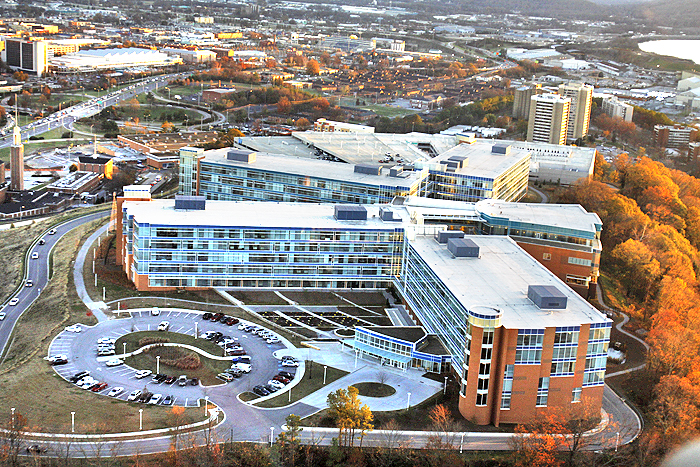BlueCross BlueShield of Tennessee has formed a political action committee to lobby the federal government, even as numbers show that PACs in the health industry have more than doubled their contributions to federal candidates in the last 10 years.
The Chattanooga-based organization already had a state PAC and contributed to BlueCross BlueShield's national federal PAC, spokeswoman Mary Danielson said in an email.
The organization sent out a fundraising letter to about 2,500 of its 5,300 employees statewide earlier this month, asking for contributions to both its state TPAC and federal BluePac.
"As you are well aware, with the passage of the Affordable Care Act, we are in a new political environment of opportunities and challenges for our company and industry," the letter from CEO Vicky Gregg says. "Your support of our PAC is important in giving us an opportunity to help determine who will govern us and who will set the business climate in which we operate."
The letter includes suggested monthly contribution levels for managers, directors and vice presidents. The suggested amounts range from $10 to $50 per month for the newly created BluePac and $10 to $75 per month for TPAC.
This is the first time the corporation has requested donations for BluePac, but it routinely solicits money for TPAC, Danielson said.
An employee at BlueCross BlueShield who received one of the solicitation letters said it is hypocritical for the company to solicit employees because employees are not allowed to do the same. Employees do not know how their contributions will be used or which political parties will be supported, he said.
The employee asked to remain anonymous for fear of retribution for speaking out about the solicitation letter.
"Unfortunately upper management has long forgotten that their employees are actually individuals," he said. "Some individuals may -- believe it or not -- disagree with their position in the political arena."
Unlike the well publicized "super PACs," corporate PACs have been around for decades, and many corporations have them, said Paul Ryan with the Campaign Legal Center, a nonpartisan organization that works in campaign finance and elections, political communication and government ethics.
Under Federal Election Commission regulations, a corporation can solicit money for the PAC from its executive and administrative employees. It is not allowed to ask for money from hourly employees or salaried employees who supervise hourly employees.
BY THE NUMBERSHealth industry PAC contributions to federal candidates:2000 election cycle $22 million2004 election cycle $25 million2006 election cycle $40 million2008 election cycle $49 million2010 election cycle $55 millionSource: Center for Responsive Politics
Companies can suggest contribution amounts but cannot pressure employees to donate or penalize employees for not donating.
"Participation is purely voluntary and you suffer no penalty for not helping, but BlueCross benefits from your support by making our voices heard by state and federal officials, which is vitally important to our business," the letter says.
The money raised can be given to specific politicians or used for general lobbying efforts, Ryan said.
Danielson declined to say specifically how donations to the new PAC would be used.
"We are a large organization serving millions of Tennesseans who trust us with their health care dollars; therefore, we need adequate resources to ensure we are protecting our members' best interests," she wrote in response to questions.
Ryan said he does not have any statistics on how many corporations have PACs or whether most of them solicit money through fundraising letters.
The FEC is considering a request to allow corporate PACs to embed "super PACs" within their other PACs, Ryan said.
Those super PACs could raise money from anyone, but could not contribute to individual politicians or their campaigns.
"The money raised would be unrestricted money for independent expenditures," Ryan said.
He expects the FEC to approve the request within a month.
According to statistics from the Center for Responsive Politics, the health industry has more than doubled its spending on annual lobbying and contributions to federal candidates in the last 10 years.
In 2011, the health industry spent $500 million on lobbying, with 3,116 lobbyists. Pharmaceuticals and health product groups spent nearly half of that money, with hospitals and nursing homes coming in second.
Direct health PAC contributions to federal candidates reached nearly $55 million in 2010, with 55 percent of the money going to Democrats and 45 going to Republicans.


